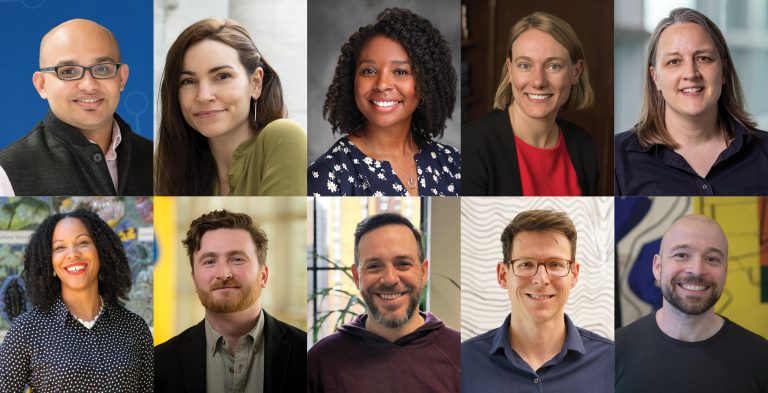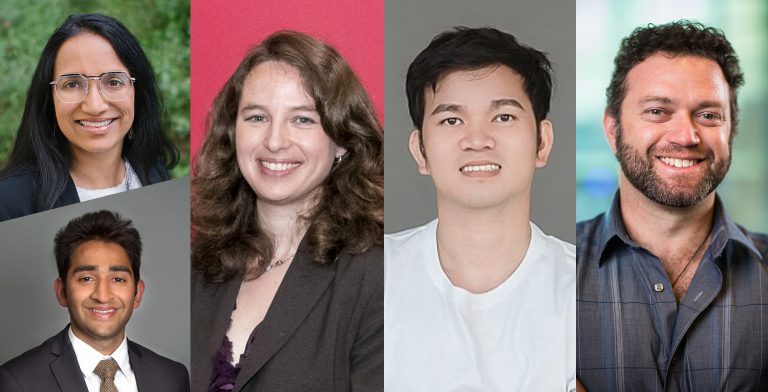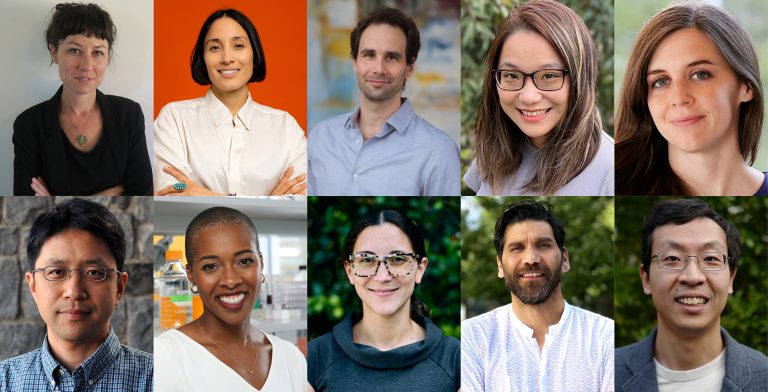McKnight Endowment Fund rau Neuroscience tau xaiv plaub txoj haujlwm kom tau txais 2025 Neurobiology of Brain Disorders Awards. Cov khoom plig yuav tag nrho $1.2 lab rau kev tshawb fawb txog biology ntawm cov kab mob hauv hlwb, nrog rau txhua qhov haujlwm tau txais $100,000 ib xyoos hauv txhua peb lub xyoos tom ntej rau tag nrho $300,000 nyiaj pab rau ib qhov project.
Cov Neurobiology ntawm Lub Hlwb Hlwb (NBD) Khoom plig txhawb nqa cov kev tshawb fawb tshiab los ntawm Asmeskas cov kws tshawb fawb uas kawm txog neurological thiab lub hlwb. Cov khoom plig txhawb kom muaj kev sib koom tes ntawm cov hauv nruab nrab thiab cov kws kho mob hlwb txhawm rau txhais cov kev tshawb pom txog lub hlwb thiab lub paj hlwb mus rau kev kuaj mob thiab tshuaj kho kom txhim kho tib neeg kev noj qab haus huv.
Ib qho kev txaus siab ntxiv yog qhov kev koom tes ntawm ib puag ncig rau kev puas hlwb. Thaum ntxov-lub neej kev ntxhov siab ib puag ncig yog ib qho tseem ceeb pov tseg rau yav tom ntej neurological thiab puas siab puas ntsws mob. Cov kev tshawb fawb pom tias cov zej zog ntawm cov xim muaj kev pheej hmoo siab dua rau cov kev ntxhov siab no, uas muaj xws li ib puag ncig (xws li huab cua, khoom noj khoom haus, raug tshuaj lom neeg, muaj kuab paug) mus rau kev sib raug zoo (xws li tsev neeg, kev kawm, vaj tse, kev txom nyem). Los ntawm kev pom kev kho mob, kev nkag siab txog qhov xwm txheej ib puag ncig ua rau muaj kab mob hauv hlwb yog qhov tseem ceeb rau kev txhim kho cov kev kho mob zoo.
"Los ntawm kev txiav txim siab cov txheej txheem nyuaj uas ua rau muaj kev cuam tshuam rau cov kab mob neurodegeneration rau kev qhia txog qhov mob ntawm qhov mob thiab nthuav tawm tias leej txiv cuam tshuam li cas rau lub hlwb kev noj qab haus huv, cov kws tshawb fawb tau xaiv rau lub xyoo no tau thawb lub frontiers ntawm neuroscience nyob rau hauv bold thiab tsim nyog cov lus qhia," said Michael Ehlers, MD, Ph.I., Thawj Tswj Hwm ntawm Awards Committee thiab Entreprene. "Cov haujlwm xyoo no suav nrog kev tshawb fawb txog kev cuam tshuam ntau dua hauv C9orf72-mediated ALS, myelin dysfunction nyob rau hauv Alzheimer's disease, daim ntawv qhia cov ntaub so ntswg ntawm qhov mob, thiab, thawj zaug txij li tshaj tawm peb qhov tseem ceeb ob xyoos dhau los, ib qho kev tsom xam ib puag ncig soj ntsuam seb leej txiv puas siab puas ntsws cuam tshuam rau cov kab mob no. transformative therapeutic possibilities rau yav tom ntej. "
Cov khoom plig tau txais kev tshoov siab los ntawm kev nyiam ntawm William L. McKnight, uas tau tsim McKnight Foundation hauv 1953 thiab xav txhawb kev tshawb fawb txog kab mob hlwb. Nws tus ntxhais, Virginia McKnight Binger, thiab McKnight Foundation pawg thawj coj tau tsim McKnight neuroscience program hauv nws txoj kev hwm xyoo 1977.
Ntau qhov khoom plig tau muab txhua xyoo. Xyoo no plaub qhov khoom plig yog:
Hyejung Won, Ph.D., thiab co-principal investigator David Shechner, Ph.D.
(Won) Associate Professor, Genetics, University of North Carolina Tsev Kawm Ntawv Tshuaj
(Shechner) Assistant xibfwb, Pharmacology, University of Washington, Seattle, Washington
Deciphering qhov kev txiav txim siab dua interactome hauv C9orf72-mediated ALS
Brad Zuchero, Ph.D. thiab co-principal investigator Ethan Hughes, Ph.D.
(Zuchero) Assistant xibfwb, Neurosurgery, Stanford University, Stanford, California
(Hughes) Associate Professor, Cell & Developmental Biology, University of Colorado Anschutz Medical Campus, Aurora, Colorado
Puas yog myelin dysfunction ua rau Alzheimer tus kab mob?
Nrog 182 tsab ntawv xav tau txais xyoo no, cov khoom plig muaj kev sib tw heev. Pawg neeg ntawm cov kws tshawb fawb tshwj xeeb tshuaj xyuas cov ntawv thiab caw ob peb tus kws tshawb fawb los xa cov lus pom zoo. Ntxiv rau Dr. Ehlers, pawg thawj coj suav nrog Nicole Calakos, MD, Ph.D., Duke University; Gloria Choi, Ph.D., Massachusetts Institute of Technology; André Fenton, Ph.D., New York University; Joseph G. Gleeson, MD, University of California San Diego; Tom Lloyd, MD, Ph.D., Baylor College of Medicine; thiab Michael Shadlen, MD, Ph.D., Columbia University.
Cov ntawv thov rau ob qho tib si 2026 Neurobiology of Brain Disorders Awards thiab Scholar Awards qhib lub Yim Hli 1, 2025.
Hais txog McKnight Endowment Fund rau Neuroscience
McKnight Endowment Fund rau Neuroscience yog ib lub koom haum ywj pheej uas tau txais nyiaj los ntawm McKnight Foundation ntawm Minneapolis, Minnesota, thiab coj los ntawm pawg thawj coj uas suav nrog cov kws tshaj lij neuroscientists los ntawm thoob plaws lub tebchaws. Lub McKnight Foundation tau txhawb nqa kev tshawb fawb txog neuroscience txij li xyoo 1977. Lub Foundation tau tsim lub Endowment Fund hauv 1986 los ua ib qho kev xav ntawm tus tsim William L. McKnight (1887–1978), yog ib tus thawj coj ntawm 3M Company.
Ntxiv nrog rau Neurobiology of Brain Disorders Awards, cov nyiaj txais txiaj ntsig kuj tseem muab cov nyiaj tau txais txiaj ntsig txhua xyoo los ntawm McKnight Scholar Awards, txhawb nqa cov kws tshawb fawb hauv cov theem pib ntawm lawv txoj haujlwm tshawb fawb.
Neurobiology ntawm Lub Hlwb Xiam Hlwb Lub Zog
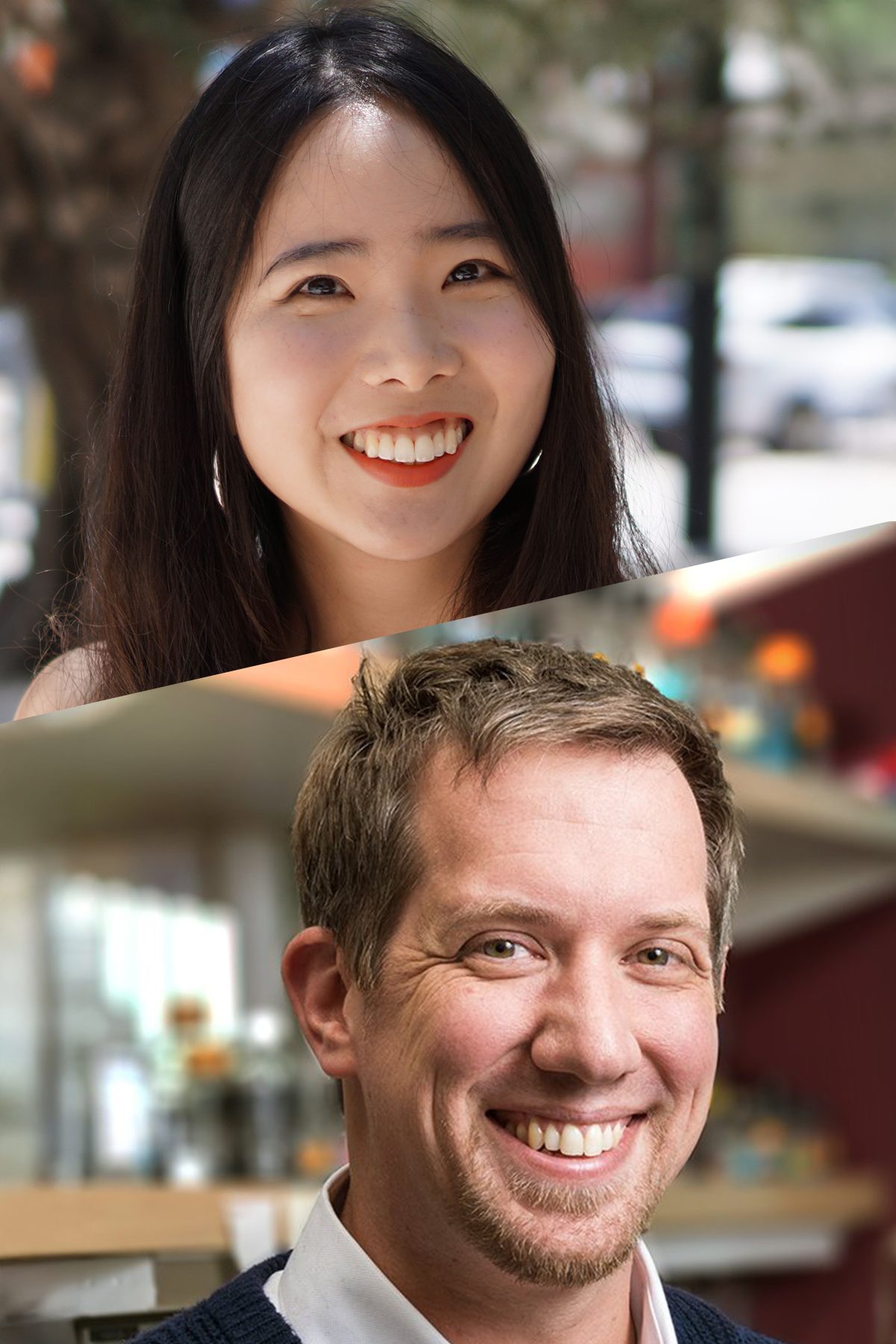
Hyejung Won, Ph.D., Associate Professor, Genetics, University of North Carolina Tsev Kawm Ntawv Tshuaj Kho Mob, thiab tus kws tshawb fawb tus thawj coj David Shechner, Ph.D., Assistant Professor, Pharmacology, University of Washington, Seattle, Washington
Deciphering qhov kev txiav txim siab dua interactome hauv C9orf72-mediated ALS
Amyotrophic lateral sclerosis (ALS) yog ib qho mob hnyav neurodegenerative uas tshwm sim los ntawm kev poob ntawm lub cev muaj zog neurons thiab cov leeg tsis muaj zog. Inherited cov ntaub ntawv ntawm ALS feem ntau txuas mus rau qhov txawv txav ntawm cov DNA luv luv-lub npe hu ua luv tandem repeats (STRs)-hauv C9orf72 gene. Txawm hais tias qhov kev sib txuas ntawm caj ces meej no, kev txhim kho cov kev kho mob zoo rau C9orf72-mediated ALS tau nyuaj vim qhov nyuaj ntawm nws cov txheej txheem hauv qab.
C9orf72-mediated ALS cuam tshuam nrog ntau yam kab mob, suav nrog cov tshuaj lom RNA thiab protein tsim. Cov pov thawj tshwm sim kuj qhia tau tias STR nthuav dav tuaj yeem cuam tshuam li cas DNA tau ntim rau hauv cov hlwb, tab sis cov txheej txheem molecular tiag tiag tseem nkag siab tsis zoo. Dr. Hyejung Won thiab David Shechner lub hom phiaj los siv cov cuab yeej tshuaj caj ces thiab tshuaj lom neeg lom neeg los tshawb pom yuav ua li cas C9orf72 STR expansions reshape DNA architecture thiab pab rau ALS pathology.
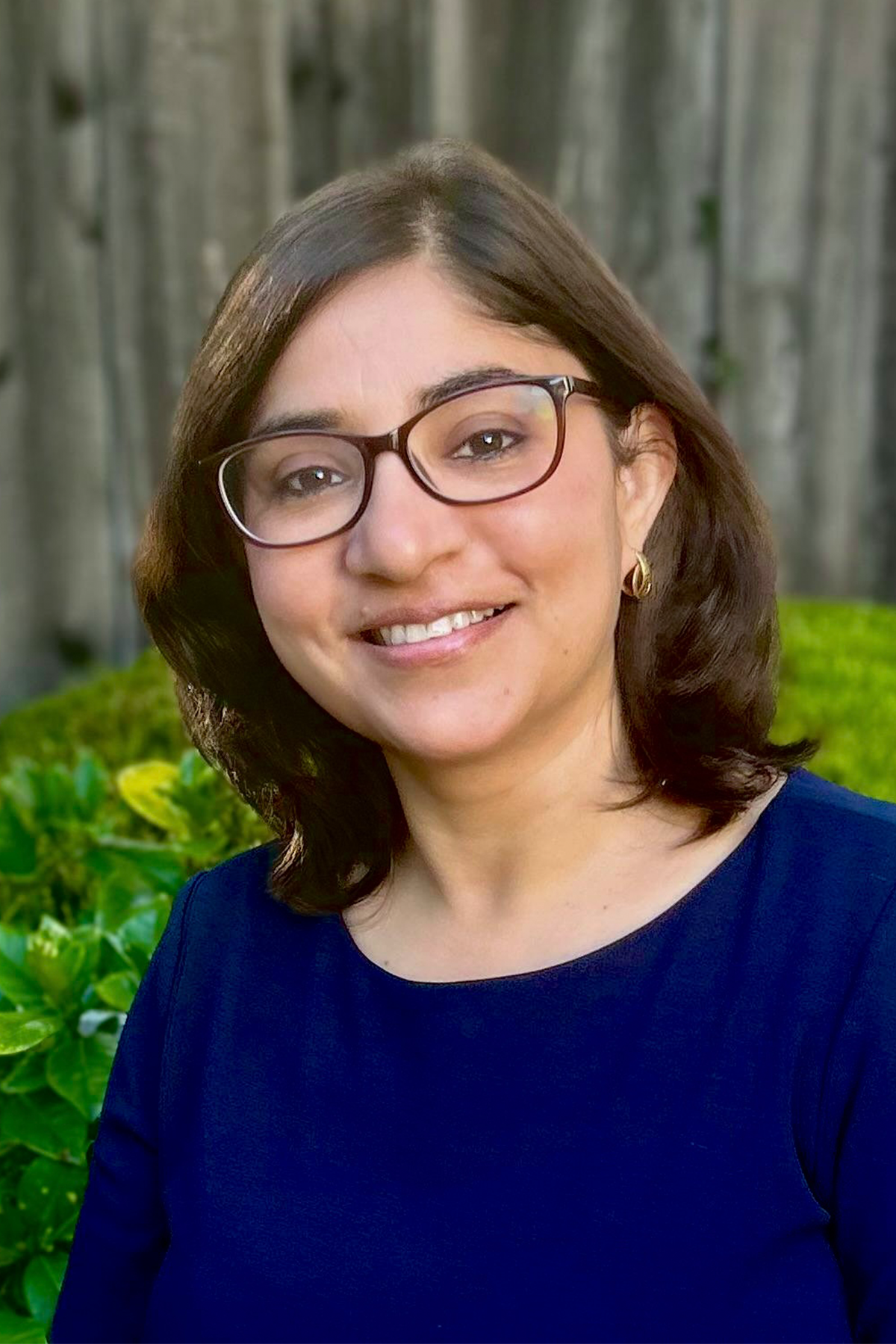
Upasna Sharma, Ph.D., Assistant Professor, Molecular, Cell, and Developmental Biology, University of California, Santa Cruz, California
Paternal ib puag ncig pab txhawb kev ntxhov siab dysregulation hauv cov xeeb ntxwv
Leej txiv puas tuaj yeem cuam tshuam txog kev ntxhov siab ua rau nws cov menyuam yaus? Cov pov thawj tshiab qhia tias nws tuaj yeem ua tau. Kev tshawb fawb txog kab mob sib kis txuas rau niam txiv kev ntxhov siab thiab kev ua neej tsis zoo rau kev pheej hmoo ntawm cov kab mob neuropsychiatric hauv cov xeeb ntxwv, tab sis cov txheej txheem tseem tsis to taub. Dr. Sharma txoj kev tshawb fawb aims los daws qhov sib txawv no los ntawm kev tshawb xyuas seb qhov kev ntxhov siab ntev npaum li cas hauv cov txiv neej nas hloov cov phev thiab cov kev pabcuam kev ntxhov siab hauv cov xeeb ntxwv.
Nws lub chaw kuaj mob pom tias cov txiv neej-tab sis tsis yog poj niam-cov xeeb ntxwv ntawm cov txiv uas muaj kev ntxhov siab tuaj yeem pom cov lus teb tsis txaus ntseeg, ib qho kev cuam tshuam nrog qee yam kev puas siab puas ntsws. Dr. Sharma lub hom phiaj los nthuav tawm cov teeb liab molecular tom qab qhov qub txeeg qub teg, tsom mus rau RNA molecules me me hauv phev. Nws lub chaw kuaj mob yuav txheeb xyuas seb cov cim kev ntxhov siab tau sib txuas lus li cas ntawm lub hlwb mus rau cov phev thiab seb cov cim qhia no cuam tshuam li cas rau kev loj hlob thaum ntxov los cuam tshuam rau cov xeeb ntxwv noj qab haus huv. Qhov kev tshawb fawb no tsom los muab kev nkag siab tshiab rau hauv cov hauv paus hniav ntawm cov kab mob kev nyuaj siab ntsig txog kev pheej hmoo.
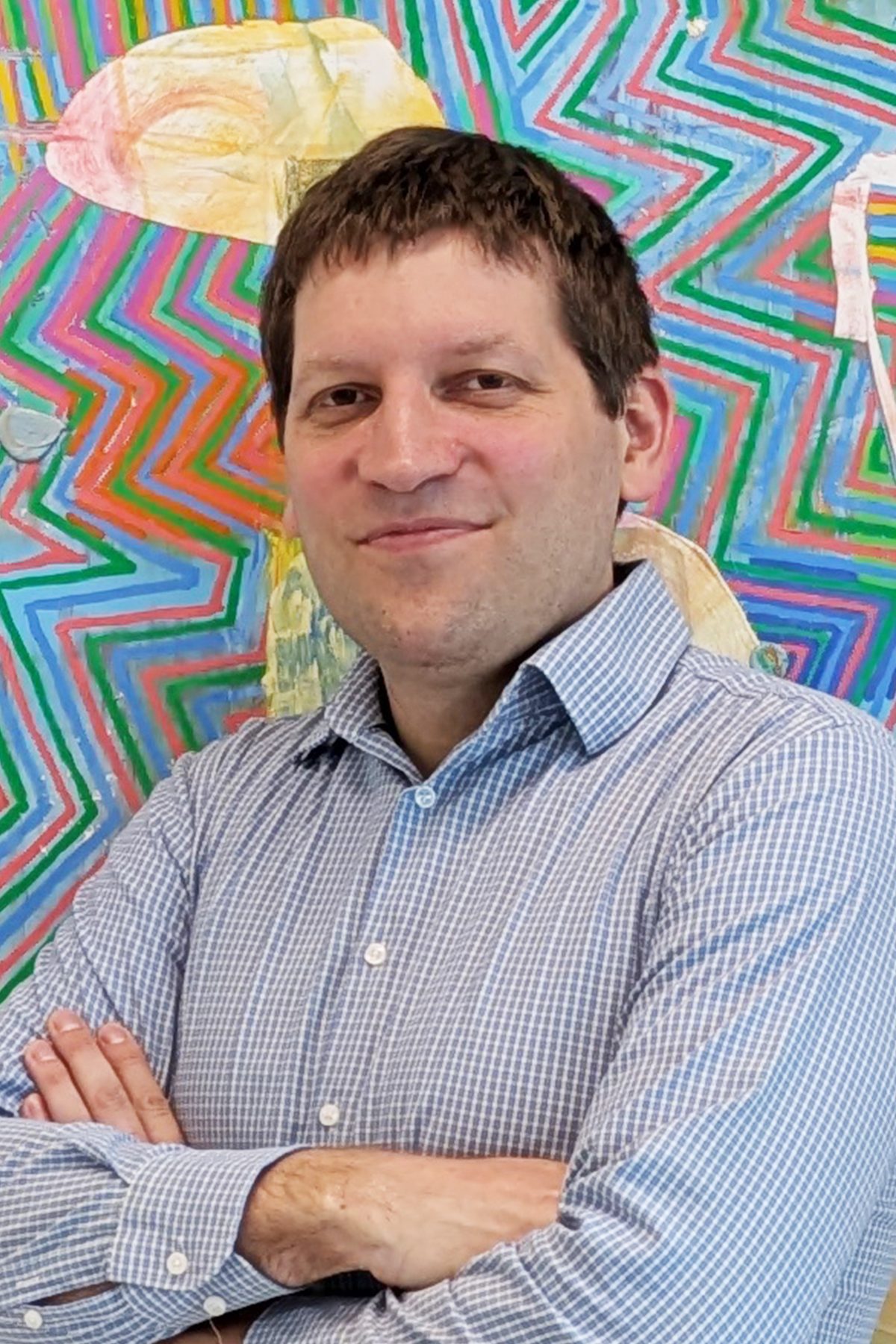
Allan-Hermann Pool, Ph.D., Assistant Professor, Neuroscience, University of Texas Southwestern Medical Center, Dallas, Texas
Tus cwj pwm thiab kev kho lub hom phiaj ntawm tus txha caj qaum daim ntawv qhia kev mob xeev
Kev mob yog ib qho kev txhawb zog uas yuam peb kom tsis txhob muaj kev puas tsuaj rau lub cev los hloov kev tshawb nrhiav kev raug mob mus rau kev zam, kev daws teeb meem thiab kev coj cwj pwm. Txawm hais tias qhov mob tseem ceeb rau kev ciaj sia, kev kho mob tsis txaus tuaj yeem ua rau mob ntev uas tseem ua rau muaj kev noj qab haus huv rau pej xeem. Cov cellular substrates uas ua rau lub hauv paus mob tsis tu ncua xeev thiab txhais tau tias xaiv kev kho mob tswj lawv nyob twj ywm tsis zoo. Hauv kev ua haujlwm dhau los, Lub Tsev Haujlwm Pas Dej tau txheeb xyuas tus txha caj qaum neuronal repertoires uas tau tsav los ntawm ntau qhov chaw thiab cov ntaub so ntswg sib sib zog nqus txheeb xyuas cov neeg sib tw neural substrates rau qhov mob.
Hauv kev ua haujlwm tshiab, Lub Pas Dej Lab lub hom phiaj los piav qhia lub luag haujlwm ua rau mob ntawm tus txha caj qaum hauv lub cev hauv kev ua haujlwm mob. Tsis tas li ntawd, lawv nrhiav kev tsim kho tshiab immunotoxin raws li lub tswv yim kom tshem tawm qhov mob hauv zos kho cov neeg qaum qaum ntawm tes thiab yog li xa ib qho kev tswj hwm kev kho mob ib leeg rau kev tswj qhov mob.
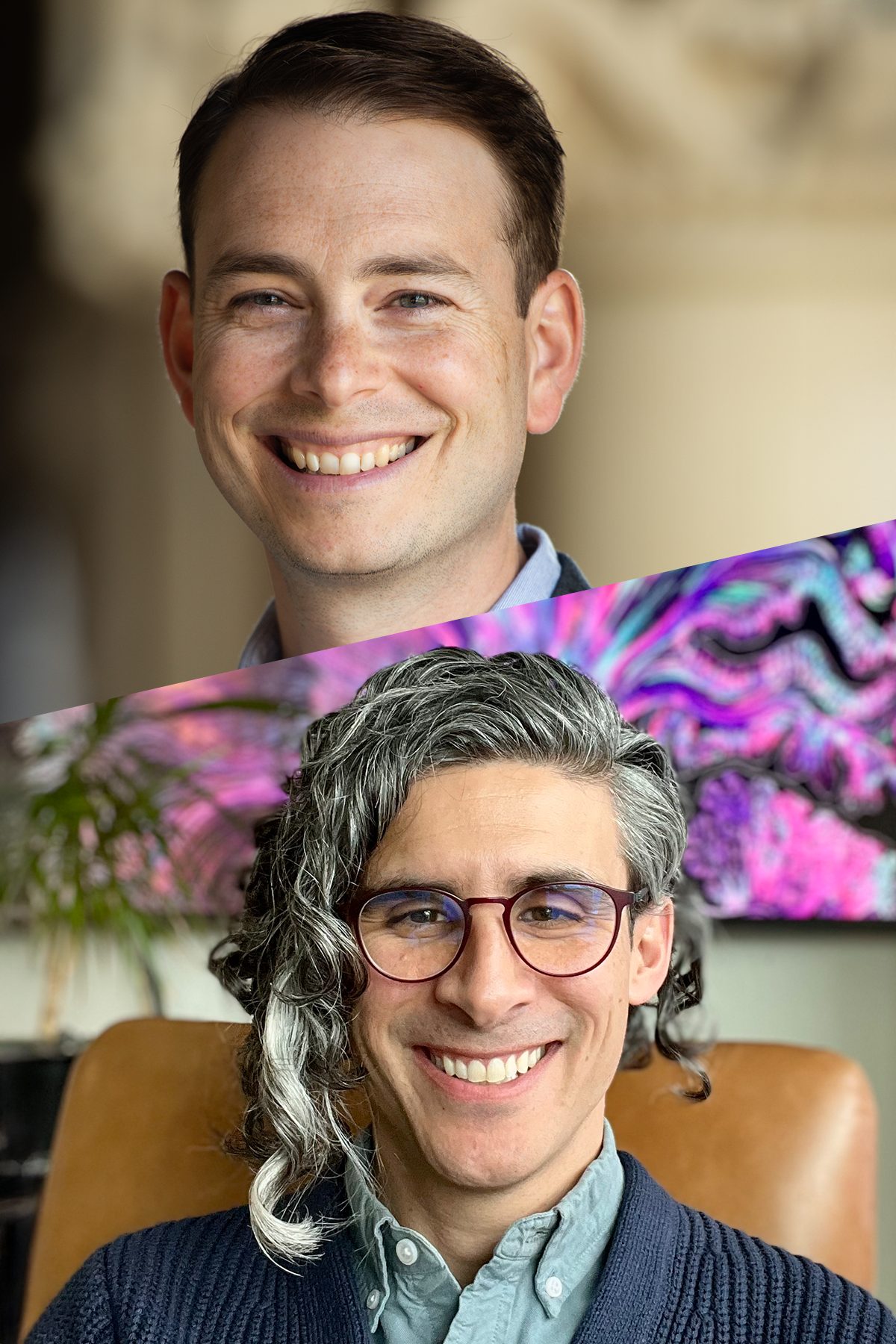
Brad Zuchero, Ph.D., Assistant Professor, Neurosurgery, Stanford University, Stanford, California, thiab tus thawj coj tshawb xyuas Ethan Hughes, Ph.D., Associate Professor, Cell & Developmental Biology, University of Colorado Anschutz Medical Campus, Aurora, Colorado
Puas yog myelin dysfunction ua rau Alzheimer tus kab mob?
Myelin yog qhov yuav tsum tau ua kom nrawm thiab meej cov paj hlwb thiab ua lub luag haujlwm tseem ceeb hauv kev tiv thaiv neuroprotection, kev kawm, thiab kev nco. Myelin tsis ua haujlwm thiab poob tau tshwm sim thaum ntxov ntawm cov kab mob neurodegenerative, suav nrog Alzheimer's disease (AD). Txawm li cas los xij, cov txheej txheem ntawm tes tsav tsheb myelin tsis ua haujlwm thiab poob hauv AD tseem tsis paub ntau.
Ua ke, Zuchero thiab Hughes lub chaw kuaj mob yuav siv cov nas muaj noob caj noob ces-tsav myelin phenotyping pipeline txhawm rau txheeb xyuas qhov cuam tshuam ntawm cov noob tseem ceeb AD-txuas rau ntawm myelin tsim thiab kev ncaj ncees. Qhov project yuav ua kom muaj kev txawj ntse ntxiv ntawm Zuchero lab hauv myelin cell biology thiab genetic tool building, thiab Hughes lab nyob rau hauv longitudinal hauv vivo imaging ntawm myelin tsim / dynamics thiab kev ntsuam xyuas tus cwj pwm.
Zuag qhia tag nrho, qhov phiaj xwm no nrhiav kom qhib qhov chaw tshiab ntawm AD kev tshawb fawb uas yuav nthuav tawm myelin raws li lub hom phiaj kho mob tshiab, tsis siv tshuaj kho - lub hom phiaj kev tshawb fawb hloov pauv uas Zuchero thiab Hughes labs tau npaj los daws ua ke.
